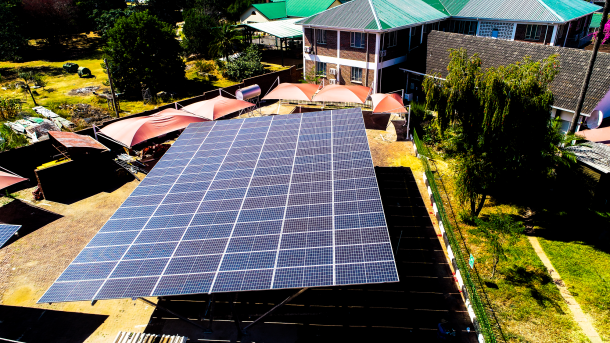Article
New report highlights UNESCO’s environmental action

UNESCO’s Environmental Sustainability Report is released at the same time as the UN Greening the Blue Report 2022. Published by the UN Environment Programme, this annual report measures the environmental performance of UN organizations and showcases their efforts to improve it.
The two reports come at a time of multiple global crises with respect to the environment. The energy crisis is currently highlighting that investing in energy efficiency measures and renewable energy solutions is not only important to tackle the climate crisis, but also to contain the economic effects of inflation and to ensure business continuity. The reports show that UNESCO is reacting and adapting well to these crises.
Key figures
Climate neutrality
UNESCO also figures among the UN entities that were climate neutral in 2021, meaning that the organization offset all reported emissions. This was achieved through the purchase of Certified Emission Reductions, partially via the UN Adaptation Fund, and partially from three UN-certified emission-reduction projects: a clean cook stove project in Malawi, a biomass project in India and a wind farm in Mongolia. While offsetting remains an important factor in managing unavoidable emissions, the priority should be emission reduction and elimination.
Good practices in the Field
UNESCO has made significant efforts in the past years to improve its environmental performance by setting up an organization-wide environmental management system. The UNESCO report contains many recent initiatives and good practices from Headquarters and Field Offices all around the world, such as paperless administration in Bangkok, waste recycling in Lima, electric vehicles in New Delhi, energy savings in Paris and a solar project in Zimbabwe. It also gives an outlook on upcoming measures and projects in order to continuously approve and ensure that all set targets are achieved by 2030, in line with the goals of the Paris Agreement.
UNESCO Environmental Sustainability Report 2022
Download the full Report







